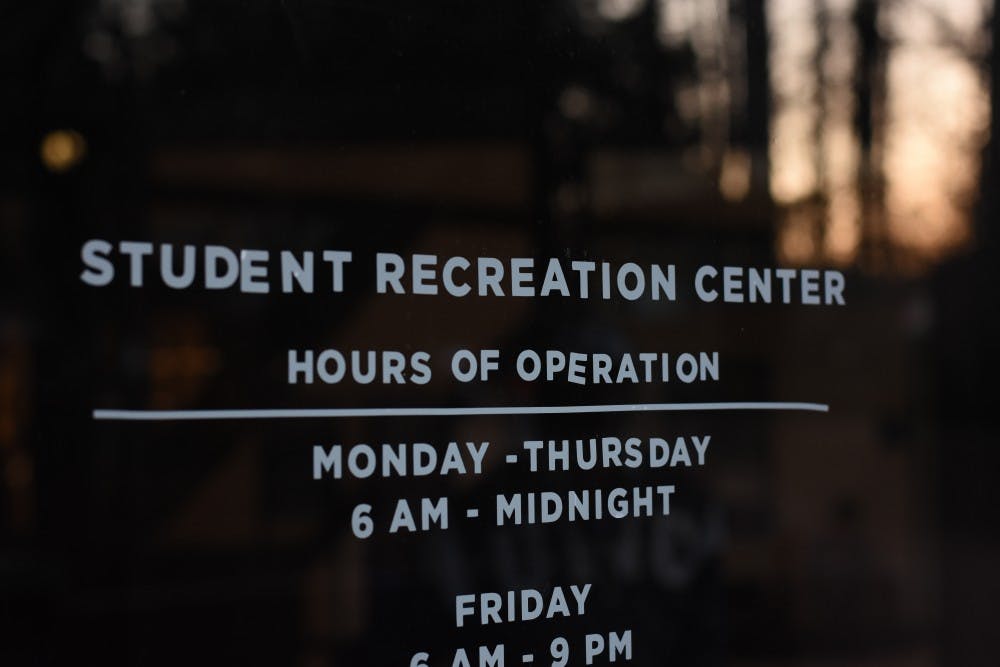It’s a Sunday night in mid-January.
The first and second floors of the Student Recreation Center are packed with weightlifters, runners and Zumba dancers. There are lines of students waiting to step onto the treadmills to fulfill their New Year resolutions of losing 10 pounds and getting their spring break bodies.
But within this group of students satisfying their desire to be healthier hides the need to fit the “perfect Carolina student ideal” — for some, a detrimental gateway to disordered eating and to others in recovery from eating disorders, a trigger.
Senior Anna Dodson always enjoyed exercising and was a competitive dancer before coming to college. During her first year at UNC she took up running as an outlet from her pre-med studies. She liked how conducive the campus was to living a healthy lifestyle. She was confident in her body, she felt secure.
But in the second semester of her junior year, she started to experience the other side of the UNC student lifestyle.
“Like the typical Carolina student, I pretty much had every minute of my life scheduled,” Dodson said. “But underneath my busy-ness, I felt like a bond servant to the perfectionist ideal that we sometimes have at Carolina. I had to be the perfect, hardworking Carolina student who did well in school but was also extremely fit and ate well and just had it all together.”
When doing it all — taking 16 credit hours, holding multiple leadership positions and dealing with the stress of preparing for the MCAT — took up her time and energy, Dodson had to sacrifice her time to go to the gym.
“Naturally, I gained some weight,” Dodson said. “But then I began to feel uncomfortable and unfamiliar with my body and felt like a failure.”
These feelings led her to unhealthy thoughts about her body and unhealthy eating habits — habits that ultimately led her down the road to an eating disorder.




